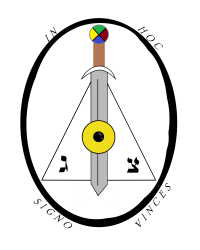Home / What is Thelemic Spiritism? / On Religion / Joy / Health & Safety / Methodology / Community / 'Spooky' Behaviours / Advancement / Book Recommendations
It is fully understandable why folks bristle at ideas of religion and spirituality, as these concepts have been used to justify and coax great suffering on our planet. But, we think dismissing it entirely is throwing the baby out with the bath water. Below is the relevant extract from the Newcomer infosheet:
"It will be worthwhile to clarify Nietzsche’s notion of the Death of God. It is not literal nor nihilistic, however it does concern nihilism. Pre-Enlightenment, generally speaking, Truth and Knowledge came not from Man but GOD - Scripture and Divine Revelation. Post-Enlightenment: from Reason, Science, us. But something was lost, the implicit meaning and order in the universe which comes from the belief it is Divinely Mandated. This is what concerned Nietzsche, the rise of what he called ‘European Nihilism’. A more enlightening passage on the matter (paraphrased to avoid digging through books): ‘We are at sea, and not only have we burned the bridges behind us but destroyed the land itself, and there are no stars above to guide us.’
"A more modern version of this idea is Camus’ conception of The Absurd: as humans, we deeply desire meaning, yet there is apparently none to be found in the material universe. Our concern, then, is addressing said gap. To do so effectively, we must update our understanding of what Religion is and can be. This is done via a reinterpretation of what Kierkegaard has to say about Faith in Fear & Trembling: to progress past the Infinite Resignation of nihilism, we must find a means to return to the Immediate.
"Briefly revisting Nietzsche: The question of Religion is not Truth, but does it inspire? Our friends in STEM are best set to inform us how the material world works, however our concern is how to live well within it. It bears repeating: we should not dismiss natural science, but strive to incorporate it into our understanding - and our friends in STEM may be well served by doing the same. An apt analogy might be: it would be foolish to take a ruler to a painting and say you can measure its beauty - and equally foolish to see this display and conclude art has no value! Our measure must fit the subject, and there is no denying there exists a widespread impulse to creative expression, religious experience (as explored by William James), to understand and feel certain. We understand art on its own terms, that it may be analysed yet has an intuitive, experiential component. Religion may be approached in a similar fashion.
"To bring all these ideas together, we can consider Spirituality as an experiential means of relating to existence (in the sense of the Kierkegaardian Return to the Immediate) and Religion as a communal symbol set which furnishes said connection. We may then consider Religion Architechtonically, ie as an art form the medium of which is systems. Not as a means of imposing our prejudices and assumptions onto the world (or, god forbid, others), but of transfiguring and ordering our lived experience. A balance must be maintained, then, between the Spiritual and Mundane. It can behove us to think of our lives as a story, yet we must be conscious of this as an imposed framing, to be abandoned when necessary. Likewise: even a food scientist, when cooking eggs in the morning, tends to focus simply on not burning them."
Our documents have been collected here in print form.

Made With The Approval Of The I.O.